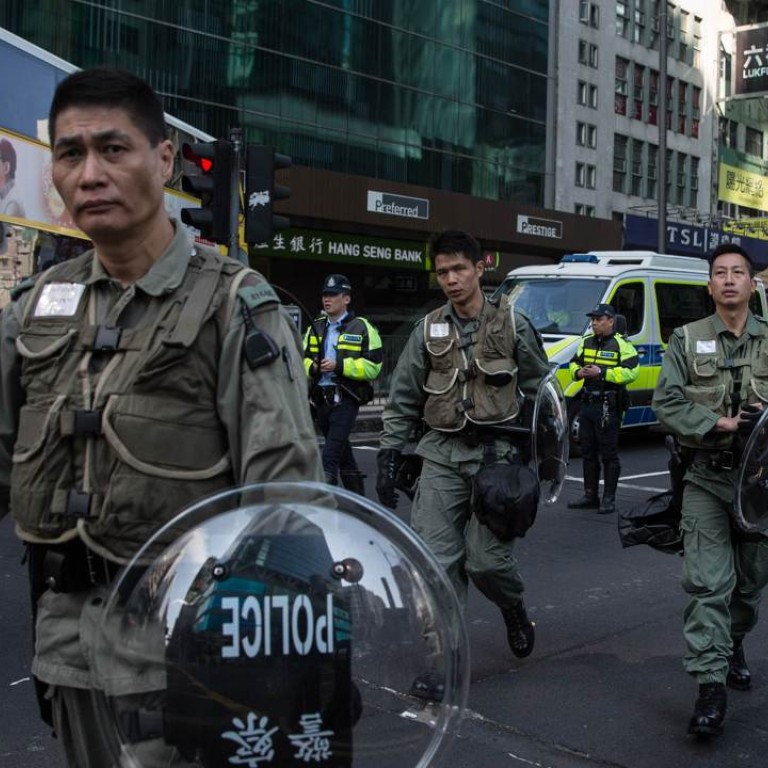
The Mong Kok riots are a wake up call about the widening wealth gap
Violent political confrontation is a new phenomenon in post-1997 Hong Kong.
It is the direct result of a new type of political actor that has growing appeal among youths and other alienated members in society – one that is more willing to use violence. This will lead to political realignments within and across democratic and establishment camps.
The rise of violent political confrontation in Hong Kong has three critical causes. First is the growing socioeconomic divide that has deepened anxiety, insecurity and conflict in day-to-day life.
Second is the government’s failure since 1997 to respond effectively to the new socioeconomic challenges and its refusal so far to reform the political system so the problems can be tackled.
Third is the rising influence of radical intellectual ideas that have led youths to view the socioeconomic divide and approach the political system with deep animosity and little patience. They see the system as morally bankrupt and the struggle to reform if not to overthrow it as regaining their human dignity.
I believe the socioeconomic divide is getting quite serious
These three critical causes cannot be addressed quickly so violent political confrontations will not cease, at least not for now.
I believe the socioeconomic divide is getting quite serious, especially among the younger generation. The sources of this divide can be traced to China’s opening and globalisation, which created the best and worst of times for Hong Kong people. It was a dream come true for those able to benefit from new opportunities in China and a more integrated world economy, but many were left behind with diminished opportunities. The net effect has been an ever growing socioeconomic divide within Hong Kong.
Moreover, the 1997 Asian Financial Crisis hit the Hong Kong economy harder than at any other downturn since the US Great Depression of 1929-39. The cumulative consumer price index fell by 11.6 per cent, cumulative GDP deflator by 16.3 per cent, nominal GDP by 8.5 per cent, and unemployment peaked at 8.8 per cent. Real interest rates reached their highest levels since World War II. Hong Kong was unable to act decisively against this because of the fixed exchange rate to the US dollar.
Only unemployment was significantly lower than in the US Depression (when it peaked at 24.9%), largely due to the flexibility of Hong Kong’s labor market and the negative growth rate of its youth population.
Although Hong Kong recovered after 2003, things worsened after the 2008 crisis when Hong Kong faced a weak US dollar and low interest rates. Asset price inflation deepened divisions between those with and without property.
The wealth gap in Hong Kong today is due largely to property price inflation over the past decades, that was amplified by a fixed exchange rate regime.
China’s opening also created unequal impacts. When Mainland visitors began to pour into Hong Kong with the relaxation of two-way visitor permits, retail property prices soared. Employment opportunities also blossomed, but landlords reaped most of the benefits.
The most long-term and broad-based impact came from cross-border marriages. Most of these took place among the low and low-middle income segments of society. While cross-border marriages had the benefit of bringing people from both sides closer together, it also created social problems.
Today, some 40 per cent of all households (headed by a person under 65 years old) in public rental housing estates have members who are recent immigrants. And 80 per cent have incomes below the median household income (versus only 51.4 per cent in 1981).
All these changes have happened within one generation. Those born in the 1950s and 1960s have a very different outlook from those born in the 1980s and 1990s. So although the numbers of radical political actors ready to participate in violent confrontation are few, their silent supporters online are not few.
History has shown repeatedly that violent political confrontations have economic, social and intellectual causes, in addition to political ones. Germany between the two world wars is but one example.
There is overwhelming empirical evidence that a big problem exists in Hong Kong even if it is not fully recognised. I hope the violent unrest, although heart-wrenching and deplorable, will be a wake-up call for attention.
Socioeconomic deprivation and rising inequality do not necessarily turn into political or even violent unrest. But the protests are not without sympathetic support.
Richard Wong Yue-chim is Philip Wong Kennedy Wong Professor in Political Economy at the University of Hong Kong

